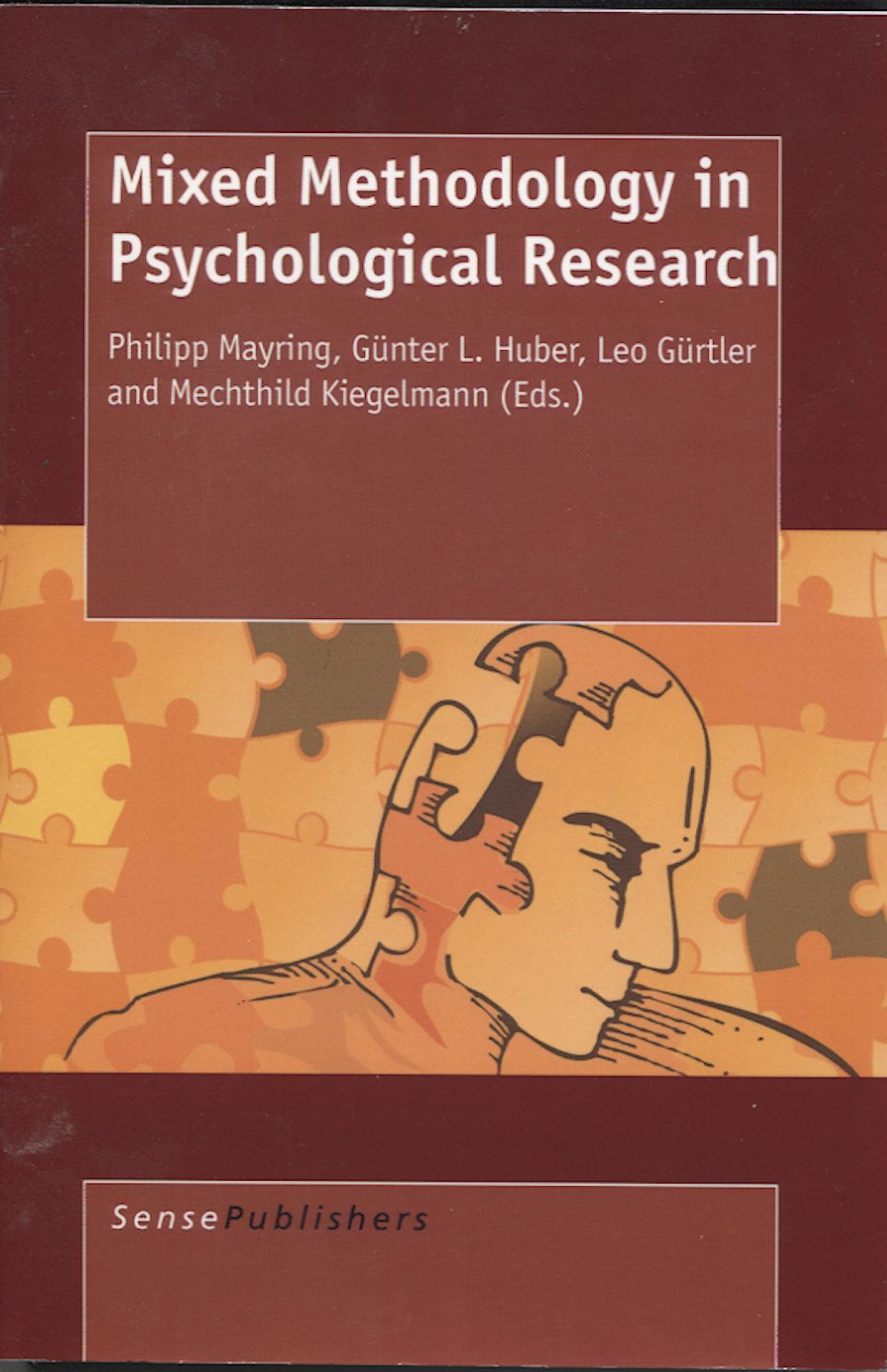The fifth annual meeting of Qualitative Psychology on
"Mixed Methodology
in Psychological Research"
was held in Freudenstadt (Germany) and was organized by the Center for Qualitative Psychology
(Tübingen, Germany).
The meeting discussed methodological controversies in social research and tried to give reasons
for alternatives to mono-method research and presented examples of mixed methodologies
from different fields in psychology and education, from psychiatry to organisational psychology,
from learning studies to media analysis.
The studies were grouped into four sections:
- combining qualitative methods,
- combining qualitative and quantitative methods,
- access to individual experience by mixed methods and
- deeper understanding of findings by mixing methods.
|
Contributions to the Meeting |

1. Introduction: Arguments for Mixed Methodology
Ph. Mayring
2. Combining Qualitative Methods
2.1 How to tap the full ptential of qualitative research by applying qualitative methods
G. Shank
2.2 Maximizing data use: Mixed qualitative mehtods
G. M. Boulton-Lewis & L. A. Wilss
3. Combining Qualitative and Quantitative Methods
3.1 Mixing qualitative and quantitative methods
Ph. Mayring
3.2 Combining qualitative and quantitative research strategies for analysing the experience
of aversive tension in different patient groups
J. Bishkopf, C. Stiglmayr, S. Scheuer, V. Albrecht, N. Porzig & A. Auckenthaler
3.3 Content analysis of task solutions as a means to generate achievement scores
S. K. Lehmann-Grube
3.4 Institutional plans for educational institutions and organization culture
E. Álvarez Arregui & R. Pérez Pérez
3.5 Following the process - using mixed methods to capture clients' experiences of change
in therapy and counselling
S. B. Gahleitner
3.6 ICT training needs of adults in formal and non-formal educational processes in 21st-century society
L. Almazán Moreno & Ortiz Colón
3.7 Coherence in knowledge communication: How do online groups communicate?
K. Schweizer, M. Paechter & B. Weidenmann
4. Access to Individual Experience by Mixed Methods
4.1 The relation of instructional quality to students' emotions in secondary schools - a qualitative-quantitative study
M. Gläser-Zikuda
4.2 Combining software for qualitative and quantitative analyses: Empirical examples on clustering, classification,
and typological classification
L. Gürtler & Günter L. Huber
4.3 Methods used for reseaarch regarding iteration in instructional design
D. M. L. Verstegen
4.4 Mixed methods: Challenging work and organizational psychology: The case of employee commitment
N. Torka
5. Deeper Understandung of Findings by Mixed Methods
5.1 How to add qualitative profundity to quantitative findings in a study on cooperative learning
A. A. Huber
5.2 The press as an educational resource in adult education. A quantitative-qualitative research perspective
C. Ricoy Lorenzo & T. Feliz Murías
5.3 The qualitative analysis of educational spaces on photograpy support
T. Feliz Murías & C. Ricoy Lorenzo
5.4 Project "Integration of Children with Migration Background in Baden-Wuerttemberg and California" as
an example for multi-method design
K. E. Sauer & J. Held
6. Conclusions: The reflective use of Combined Methods - A Vision of Mixed Methodology
L. Gürtler, G. L. Huber & M. Kiegelmann
The contributions to this meeting are not available for download.
They were published in a book:
Philipp Mayring, Günter L. Huber, Leo Gürtler, & Mechthild Kiegelmann (Eds.) (2007).
Mixed methodology in psychological research. Rotterdam: Sense Publishers.
|